1. The Non Endorsement Rule
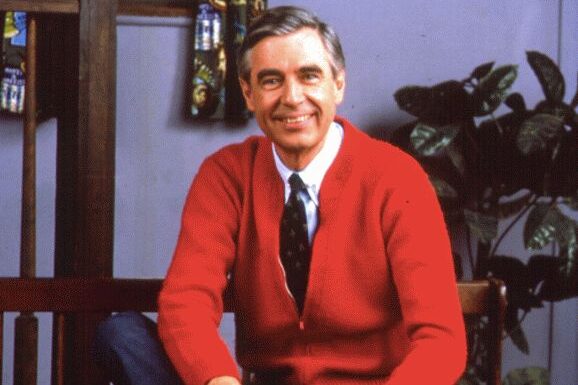
Fred Rogers wore cardigans, changed into sneakers, and spoke so gently you could almost forget he was one of the toughest defenders of children’s trust in television history. He rarely raised his voice, but when someone crossed the line, he stood firm with kindness as his weapon. Rogers decided early on he would never endorse products. While other children’s hosts happily attached their names to cereal boxes and toys, Rogers refused. He feared a child might mistake advertising for genuine friendship, and that betrayal of trust was unacceptable. Money never tempted him because integrity always did.
2. Speaking Out Against Ads for Kids
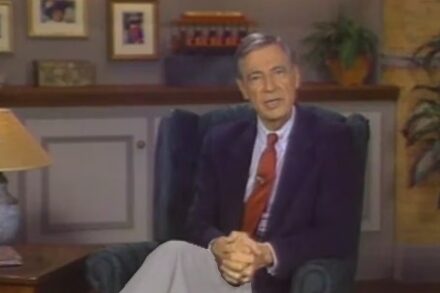
Rogers didn’t just avoid product endorsements; he actively spoke out against marketing to children. He believed kids couldn’t yet tell the difference between storytelling and persuasion, which made advertising to them unfair. His show became one of the few places where young viewers could watch without feeling pressured to buy something. In an age when television often mixed entertainment with promotion, he took a lonely but principled stand. That choice wasn’t about fame or control, it was about protecting innocence. His quiet resistance turned Mister Rogers’ Neighborhood into a genuine refuge built on trust instead of commercial gain.
3. Burger King’s Mister Rodney 1985

In 1985, Burger King tried to be clever by creating a parody ad featuring a man named Mister Rodney who wore a cardigan and spoke like Rogers while promoting hamburgers. Many found it funny, but Rogers didn’t. He saw the danger right away because children might believe he was part of it. Instead of issuing a public complaint, he simply made a phone call to the company. His tone was calm, his message clear. He explained how easily young minds could be confused, and that quiet conversation carried more power than any lawyer could have managed.
4. A Phone Call with Impact
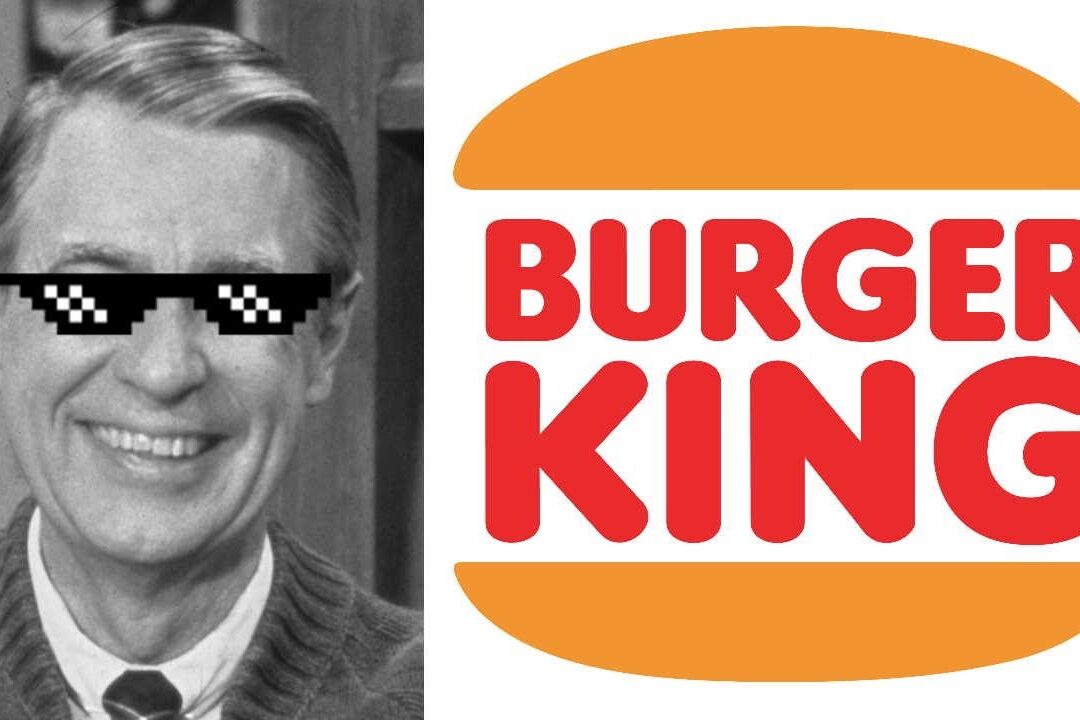
The Burger King commercial had already cost thousands to make and was airing nationwide, but that didn’t stop Rogers. After his polite call, the company immediately pulled the ad. There was no legal threat, no drama, only respect for a man whose moral clarity couldn’t be ignored. His simple conversation changed minds because it was rooted in sincerity. Rogers didn’t fight for himself, he fought for children who trusted him. That single phone call became an early sign of how his quiet strength could move even corporate giants to do the right thing without hesitation or resentment.
5. You Don’t Want to Mess with Him
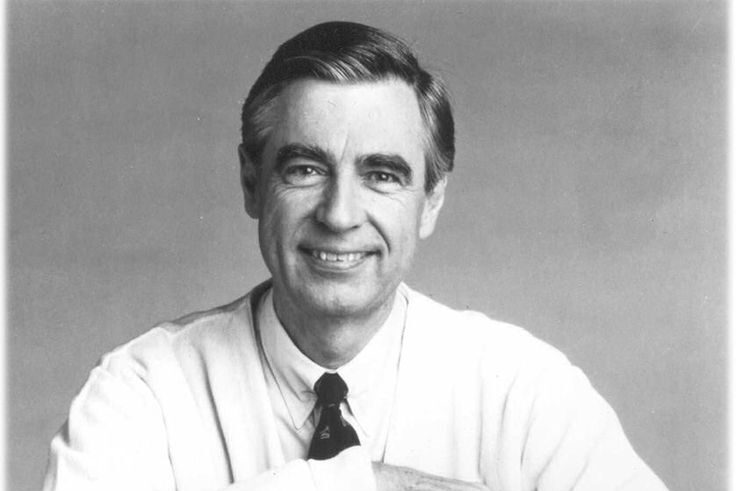
Even Burger King executives admitted they underestimated him. Don Dempsey, the company’s senior vice president, said years later, “Mister Rogers is one guy you don’t want to mess with.” It wasn’t because Rogers was intimidating, it was because his moral authority was impossible to argue against. When someone lived with that much consistency, even the most powerful companies listened. He never needed anger or power plays, just the truth said plainly. That moment proved something deeper than influence, it showed that kindness, when practiced without compromise, could be one of the most commanding forces in the world.
6. Johnny Carson’s Misstep
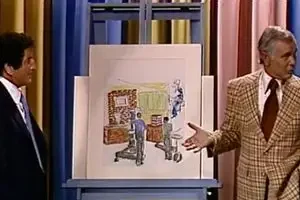
Johnny Carson once parodied Rogers in a sketch called Mister Rambo’s Neighborhood, showing him as an action hero. The joke missed the mark, and Rogers quietly said he didn’t appreciate it. There were no harsh words, just honest disappointment. Carson realized he had gone too far and apologized. Rogers’ reaction reminded people that strength doesn’t need to be loud to be effective. His quiet honesty often led others to reflect and correct themselves. That calm dignity became his trademark, a reminder that sincerity can be a stronger response than anger in a world used to shouting contests.
7. Eddie Murphy Got It Right
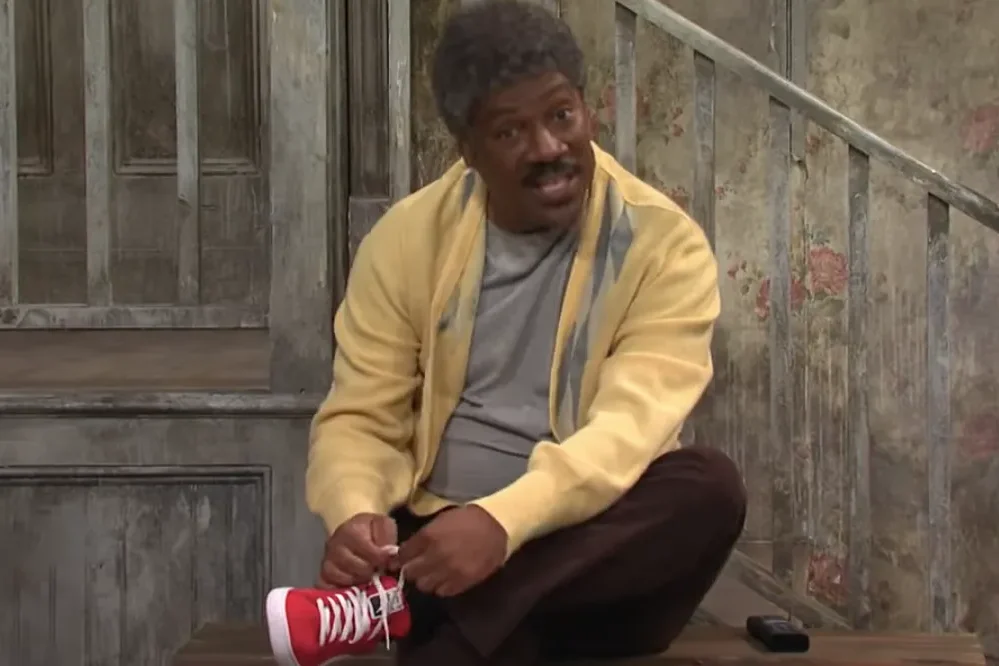
When Eddie Murphy created Mister Robinson’s Neighborhood on Saturday Night Live, it could have easily caused offense. Instead, Rogers appreciated it. He understood that Murphy’s version wasn’t mocking him but using his format to tell stories about urban life with humor and heart. Rogers even said he thought the sketch was funny and kind. He valued the intention behind it because it came from understanding, not ridicule. The difference mattered deeply to him. He could laugh when it came from respect, showing that grace and open mindedness could live alongside conviction and protect what truly mattered.
8. The Rule of Context
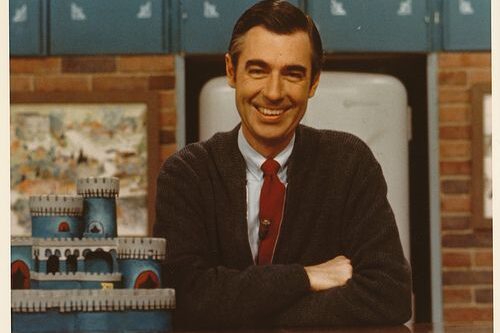
For Rogers, everything came down to context. He cared less about what people said and more about how it affected children. If a joke or parody was aimed at adults and came from a place of affection, he welcomed it. But if it risked confusing or frightening kids, he drew a line. That clear sense of purpose guided every decision he made on and off the screen. He always viewed himself as a protector of children’s emotions. His steady moral compass never wavered, making him one of the rare entertainers whose principles defined his legacy more than fame.
9. The Supreme Court and the VCR Battle
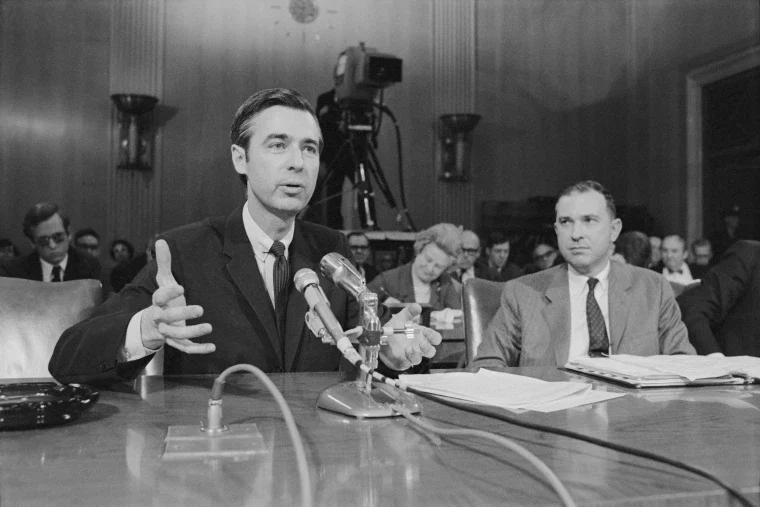
During the early 1980s, television networks were fighting to ban home video recorders, claiming they caused financial losses. While most in the industry supported the ban, Rogers didn’t. He appeared before the Supreme Court and testified that families should be able to record educational programs to watch later. He explained that parents weren’t stealing, they were caring. The justices listened. His simple honesty helped sway the ruling in favor of home recording. That moment didn’t just protect families’ rights; it quietly shaped the future of how people would watch television in their own homes forever.
10. His Testimony on Time Shifting
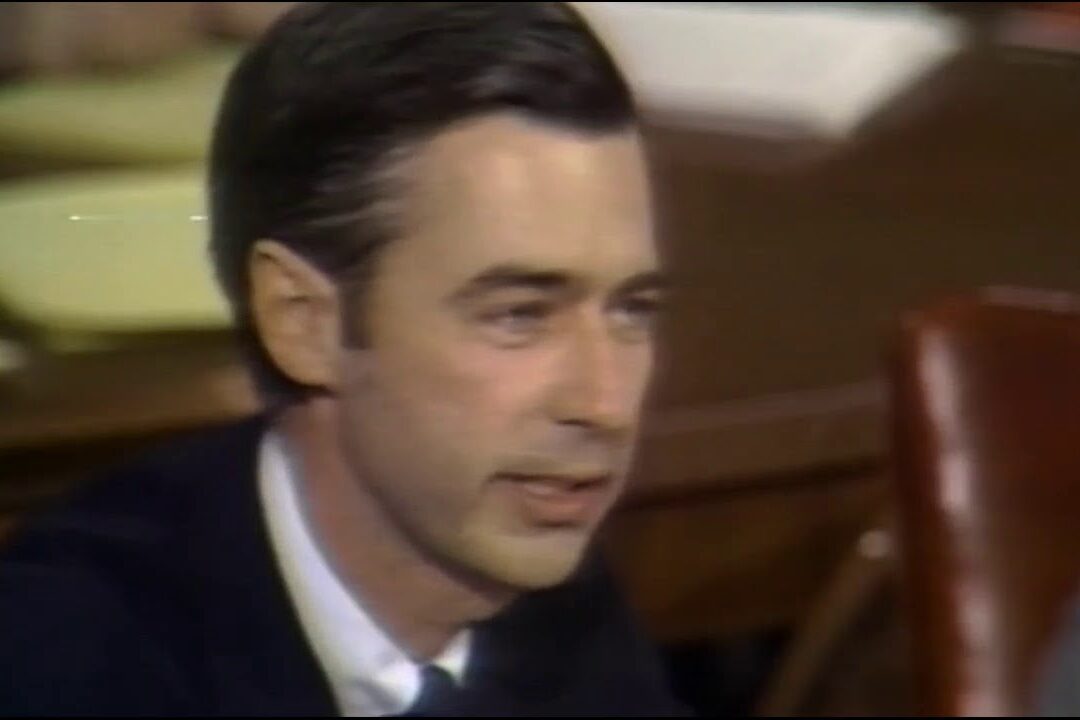
When Rogers testified about home recording, he explained that letting children watch his show later helped families spend more meaningful time together. He said it allowed parents to guide their kids through lessons about emotions, friendship, and kindness at their own pace. His words carried no legal jargon, just genuine empathy. The Court quoted his testimony in their decision, recognizing the educational and emotional value he described. Without realizing it, Rogers had defended an idea that would later evolve into streaming culture. Once again, his sincerity and humanity reshaped technology through the simplest kind of truth.
11. Changing Media History

That single testimony from Mister Rogers helped change entertainment forever. By standing up for families instead of corporations, he made space for innovations like DVRs and streaming decades later. He wasn’t motivated by progress or profit, only by what helped children and parents connect better. In a time when most people protected business interests, he quietly protected human connection. That moment proved that kindness and practicality could live side by side. Rogers didn’t just make television better for kids, he helped build the foundation for a more flexible and compassionate way of sharing stories worldwide.
12. Defending Public Television 1969
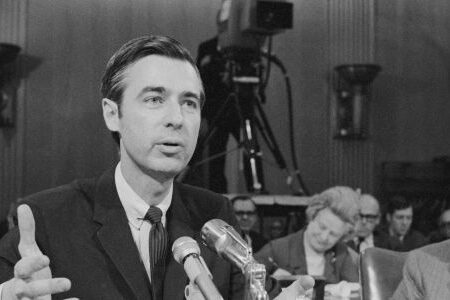
When funding for public broadcasting was threatened in 1969, Rogers testified before Congress. Instead of fiery speeches, he spoke calmly about why children needed educational television. He explained how his program taught kids to understand feelings instead of ignoring them. Senator John Pastore, who was known for his gruff demeanor, listened intently. By the end of Rogers’ gentle explanation, the senator’s expression softened. He said, “You just earned the twenty million dollars.” Rogers didn’t win the argument with force or strategy. He won it with authenticity, showing that sincerity could accomplish what politics and persuasion often failed to do.
13. Winning Over a Skeptic
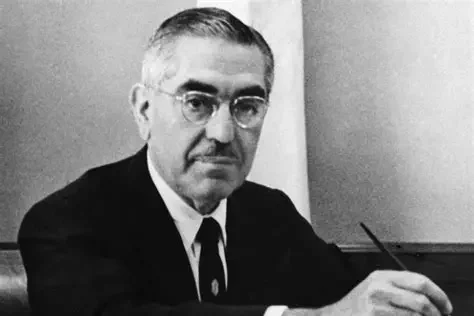
Senator John Pastore had entered the hearing ready to cut funding for public television. He wasn’t easily impressed, but Rogers’ quiet words disarmed him. Rogers spoke about helping children express emotions and how television could nurture empathy instead of violence. When he recited lyrics from one of his songs, Pastore’s demeanor shifted entirely. By the time Rogers finished, the senator said softly, “You just earned the twenty million dollars.” That moment captured Rogers’ rare ability to melt resistance with sincerity. He didn’t charm or manipulate, he simply believed that speaking with care could change even the hardest hearts.
14. The Pool Scene Against Segregation 1969
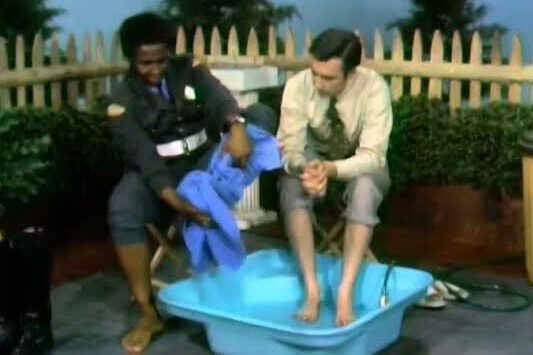
During an era still marked by segregation, Rogers invited Officer Clemmons, played by François Clemmons, a Black actor, to join him in cooling their feet together in a small pool. It was a gentle but powerful image. Rogers didn’t make a speech, he just shared water and friendship. For millions watching, that quiet act said more than words ever could. It reminded viewers that kindness knows no color and inclusion doesn’t need grand gestures. That moment remains one of television’s most enduring symbols of empathy, proving that even small, tender acts can ripple into meaningful social change.
15. Repeating the Lesson 1993
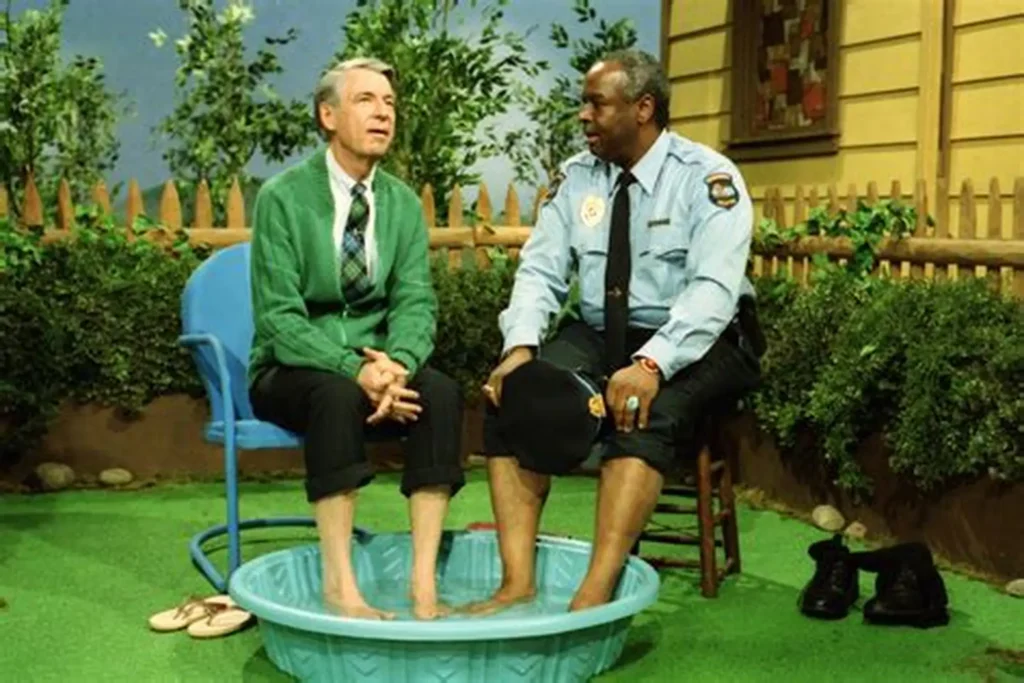
Decades after the first pool scene, Rogers recreated it with François Clemmons once again. This time, they were older, but the message still felt fresh. As they sat together, feet soaking, they smiled and reflected on their friendship. Rogers’ decision to repeat that moment reminded viewers that the fight for inclusion never really ends. Sometimes the most powerful way to make a point is simply to live it again. Their reunion showed that kindness isn’t a one-time act, it’s a lifelong choice. It proved that lessons rooted in love grow deeper when they are revisited with gratitude.
16. Meeting Jeff Erlanger 1981
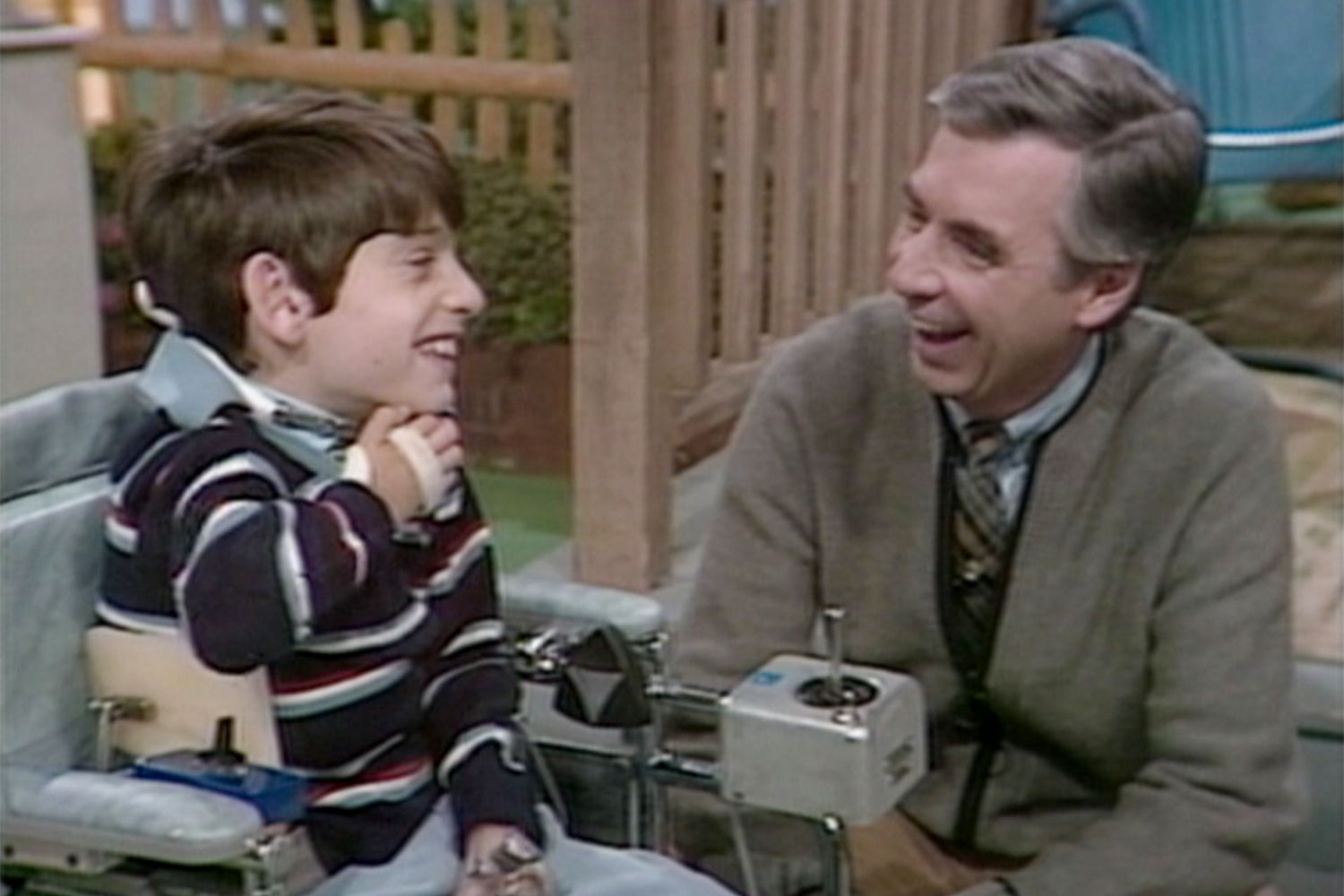
When Rogers met Jeff Erlanger, a cheerful young boy in a wheelchair, he didn’t treat him differently. They talked openly about Jeff’s disability, laughed, and sang together. The conversation wasn’t about pity but about understanding. Years later, Jeff said appearing on the show was one of the happiest moments of his life. That episode showed Rogers’ gift for seeing every child as whole and worthy. He never shied away from tough subjects, choosing instead to make them gentle and real. By celebrating Jeff’s spirit instead of his challenges, Rogers showed how true acceptance could look on television.
17. I’m Feeding the Fish
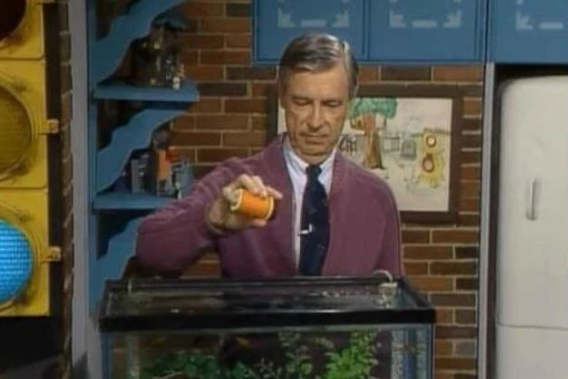
A blind viewer once wrote to Rogers, worried he might forget to feed his fish since she couldn’t see it happen. From that moment on, Rogers made sure to say aloud, “I’m feeding the fish.” It became part of the show’s rhythm. That small change proved how deeply he cared about every child’s experience. He didn’t dismiss the concern, he honored it. To him, kindness wasn’t a grand act but a daily habit. That phrase became a quiet reminder that consideration, even in the smallest gestures, can make someone feel seen, safe, and completely valued.
18. Talking About Death and Violence 1968
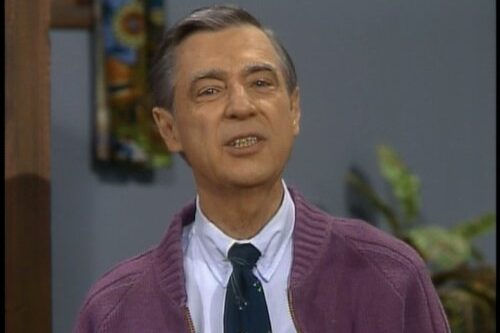
After the assassinations of Martin Luther King Jr. and Robert Kennedy, Rogers didn’t ignore what was happening. He devoted an episode to talking gently about death, explaining it in words children could understand. He wanted to help kids process the world’s sadness instead of hiding from it. He didn’t offer false comfort, just honesty and reassurance. Parents praised him for helping their children feel safe during a frightening time. That episode marked Rogers as more than a host. He became a steady voice in the noise of fear, showing that truth, told kindly, can heal confusion and grief.
19. Addressing Divorce 1981
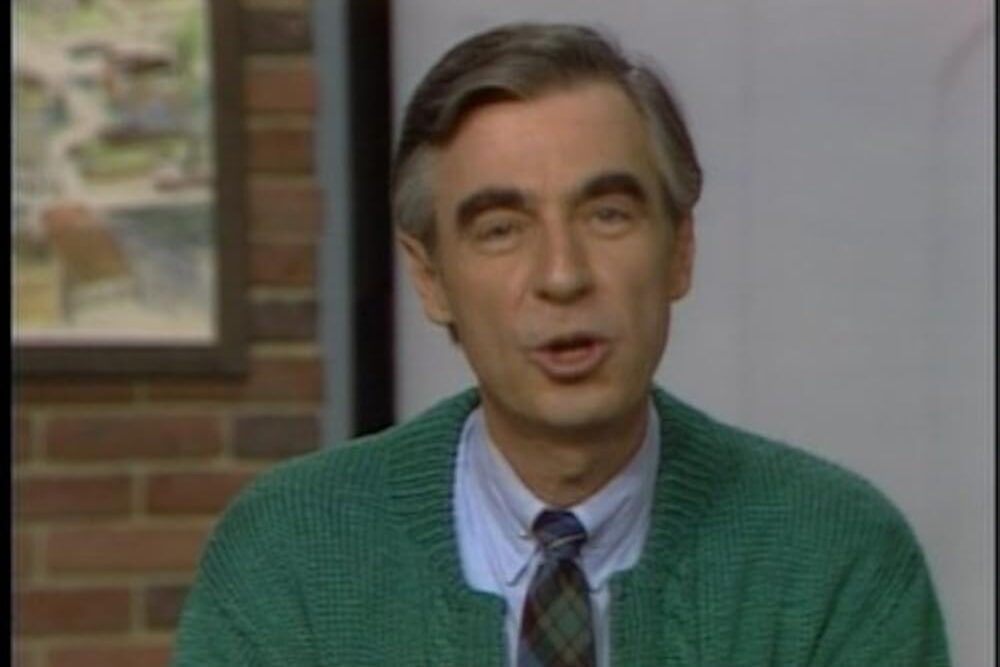
When divorce became more common in the 1980s, Rogers noticed children struggling with guilt and confusion. Instead of avoiding the topic, he created a special episode explaining what divorce meant. He looked into the camera and said gently, “It’s not your fault.” That simple phrase carried more comfort than a hundred explanations. He helped children see that grownups’ decisions were not reflections of their worth. It wasn’t dramatic television, but it was powerful. Rogers understood that emotional honesty, even about painful things, could protect children from shame and misunderstanding better than any distraction or fantasy ever could.
20. Slow Television as a Principle
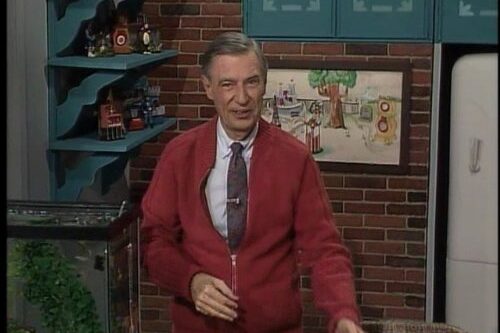
Producers often told Rogers to speed things up, to make the show more exciting. But he refused. He believed that slowing down helped children feel calm and understood. Long silences, thoughtful pauses, and deliberate conversations were his tools. He once said, “I like to give children space to think.” In a world obsessed with noise, his quiet approach was revolutionary. He showed that children’s attention didn’t need to be captured, it needed to be respected. That philosophy turned his show into a safe and mindful space that invited reflection instead of rushing toward entertainment.
21. The Magic of Factory Visits
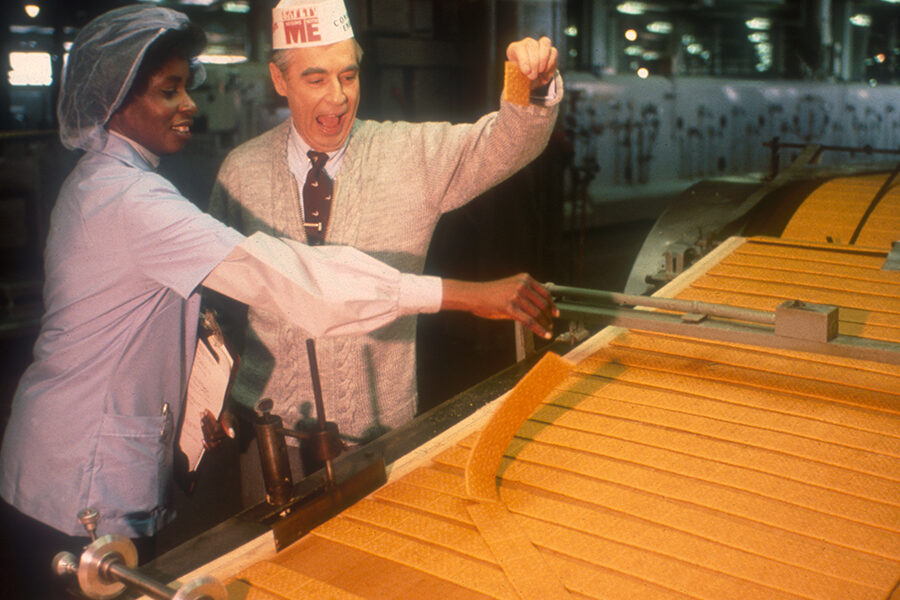
Few segments delighted viewers more than Rogers’ factory visits. Whether it was crayons, trumpets, or zippers, he took kids behind the scenes to show how things were made. His calm curiosity made everyday objects fascinating. The point wasn’t the machinery, it was the reassurance that the world was understandable. He wanted children to see that things didn’t appear magically or mysteriously but through human effort and care. Each visit celebrated creativity and patience, teaching kids that learning can be comforting. It was television that made the ordinary extraordinary without ever needing flashy effects or distractions.
22. Rejecting Merchandising
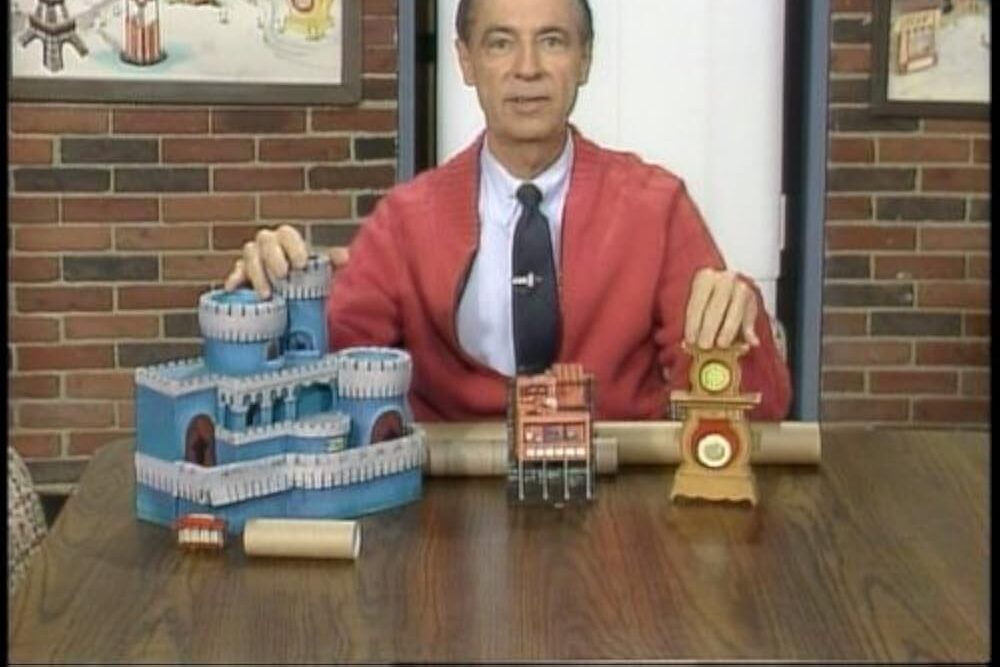
While other children’s shows built empires from toys and branded products, Rogers refused every merchandising offer. He believed friendship and trust couldn’t be sold. Licensing his image or characters would turn his lessons into transactions. For him, the Neighborhood was a real place of imagination, not a store shelf. He wanted children to feel belonging without needing to buy anything. That simple refusal kept his message pure. It also proved that success didn’t have to mean selling more things, it could mean protecting something sacred like the feeling of unconditional acceptance between a host and his audience.
23. Answering Myths with Integrity
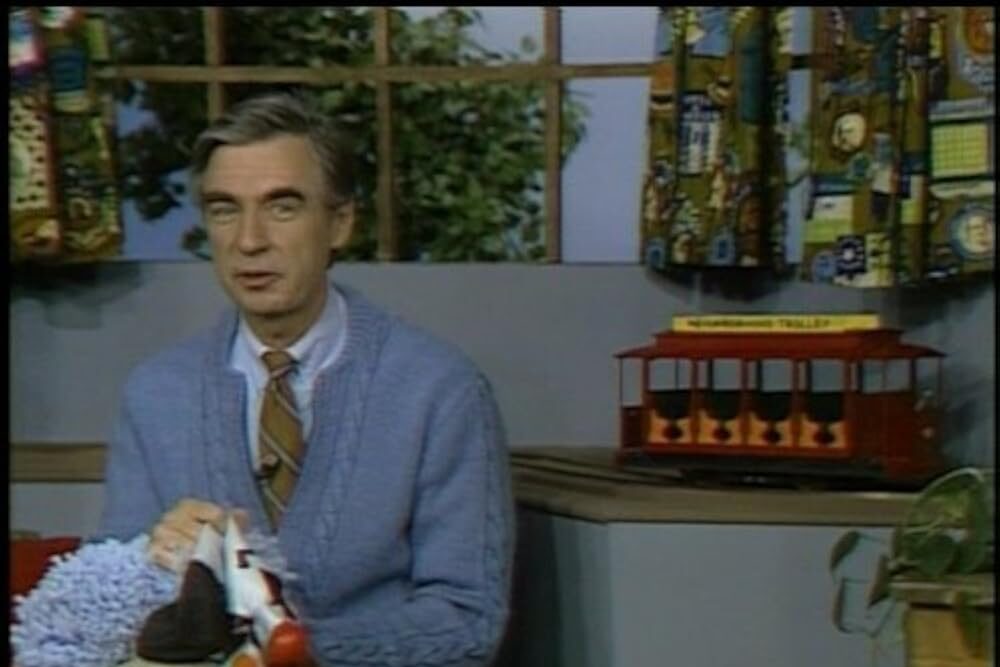
Over the years, rumors spread about Rogers being a decorated soldier or having tattoos hidden under his sweaters. He never fought the stories; he just let time tell the truth. He wasn’t interested in correcting gossip because his life spoke for itself. When asked, he simply smiled and explained that his only battles were against fear and unkindness. That quiet response reminded people that dignity doesn’t need defense. By not feeding the myths, he showed the strength of humility. In a culture obsessed with image, Rogers’ steady transparency became its own kind of quiet rebellion.
24. Ten Seconds of Silence 1997

At the Emmy Awards in 1997, Rogers accepted his Lifetime Achievement Award in front of the entertainment industry. Instead of celebrating himself, he asked everyone to take ten seconds to think of someone who had helped them become who they were. The room fell completely silent. Even celebrities known for confidence wiped away tears. It was one of those moments when his quiet authority turned a glamorous event into a shared reflection. Rogers showed that gratitude could humble even the most celebrated hearts. That silence became one of television’s most moving acts of collective kindness.
25. A Minister Who Never Preached
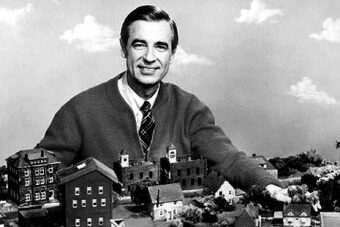
Rogers was an ordained Presbyterian minister, but he never used his show to preach religion. Instead, he lived out his beliefs through kindness, patience, and acceptance. His faith guided his tone but never divided his audience. Every lesson came wrapped in humanity rather than dogma. He spoke to all children, no matter their background, because he believed love wasn’t exclusive. His example showed that true faith can be practiced quietly through compassion. By embodying goodness rather than declaring it, Rogers reached people who might never have listened to a sermon but needed hope all the same.
26. Writing Letters by Hand
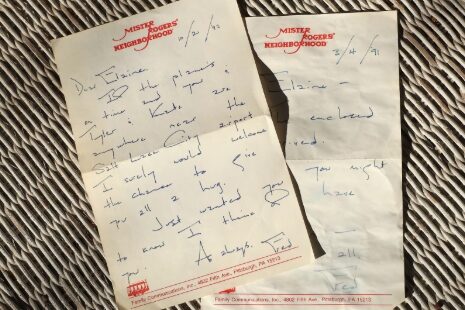
Rogers personally replied to thousands of letters from fans, often writing by hand. He believed every message deserved attention because every child deserved to feel heard. Parents would often receive thoughtful notes that spoke directly to their concerns. It wasn’t a publicity gesture but a continuation of his purpose. Writing those letters allowed him to connect beyond the screen, keeping the relationship real. He treated correspondence not as fan mail but as conversation. In a world before social media, his handwritten words became small acts of comfort that lasted long after the television was turned off.
27. Speaking After 9 11
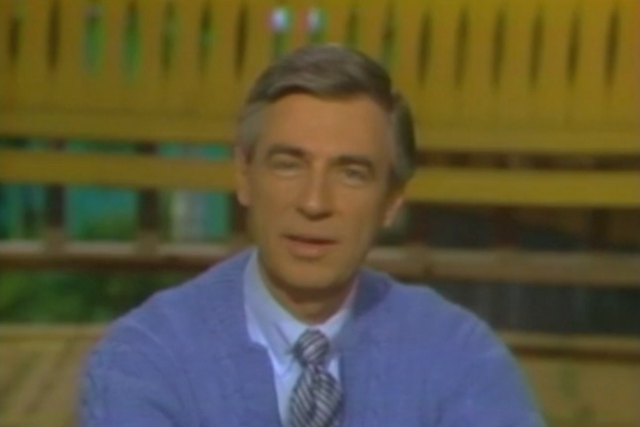
After the September 11 attacks, Rogers came out of retirement to speak to families once more. His calm presence returned at a time when fear filled every screen. He didn’t offer easy answers. Instead, he reminded parents to turn off the news and hold their children close. His voice, soft but sure, encouraged everyone to look for small ways to help and heal. The nation needed reassurance, and Mister Rogers gave it in the same steady way he always had. His message was timeless, proving that compassion never loses its place even in the darkest moments.
28. Look for the Helpers
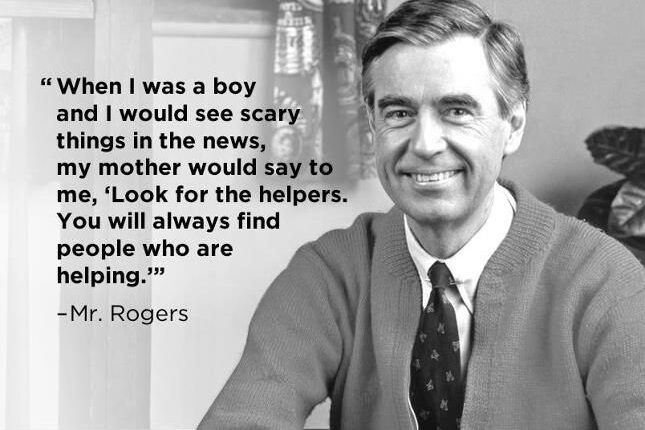
In those same 9 11 broadcasts, Rogers repeated a lesson from his mother that became one of his most famous sayings. “Look for the helpers,” he said. It reminded children that even in tragedy, there are always people doing good. That simple sentence became a phrase families still quote during times of crisis. It didn’t erase fear, but it gave hope. Rogers’ gentle wisdom offered a way for children to focus on compassion instead of chaos. The world learned that sometimes, comfort isn’t found in explanations, but in knowing that goodness still shows up when it’s needed most.
29. Boundaries That Never Bent
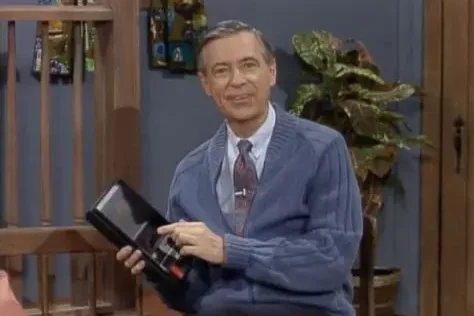
Throughout his life, Rogers faced countless pressures from networks, sponsors, and public figures. Yet he never compromised his principles. When something threatened the emotional safety of children, he said no. Whether it was corporate influence or insensitive parody, his answer never changed. He stayed polite, but firm. People admired him because his boundaries were rooted in love, not pride. That consistency made him trustworthy. Even when the world changed around him, Rogers remained steady. His unwavering values became his quiet armor, showing that staying true to kindness can be the strongest stand anyone can take.
30. The Last Lesson
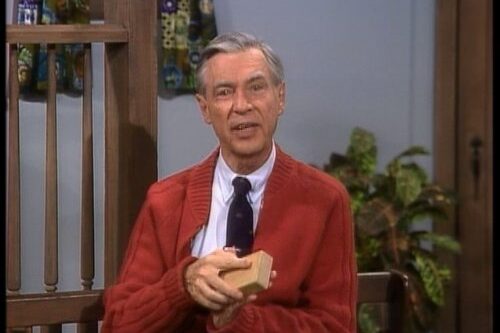
Rogers’ final message before his death summed up everything he had taught. He reminded viewers, “You made this day a special day just by being you.” It was simple, but it carried the weight of a lifetime of truth. Every lesson he shared came down to helping people feel worthy and loved. If anyone tried to twist that message, they quickly learned that behind the cardigan was a man of unshakable strength. Mister Rogers proved that gentleness isn’t weakness, it’s power in its purest form. His kindness remains the lesson the world still needs most today.
Fred Rogers never shouted, bullied, or postured. Yet he bent companies, swayed lawmakers, and even shaped technology by protecting the most fragile thing on television: children’s trust. That’s why decades later, the lesson holds: Mister Rogers may have been everyone’s neighbor, but he was also the one man you never wanted to mess with.
This story 30 Moments That Prove You Don’t Mess with Mister Rogers was first published on Daily FETCH


